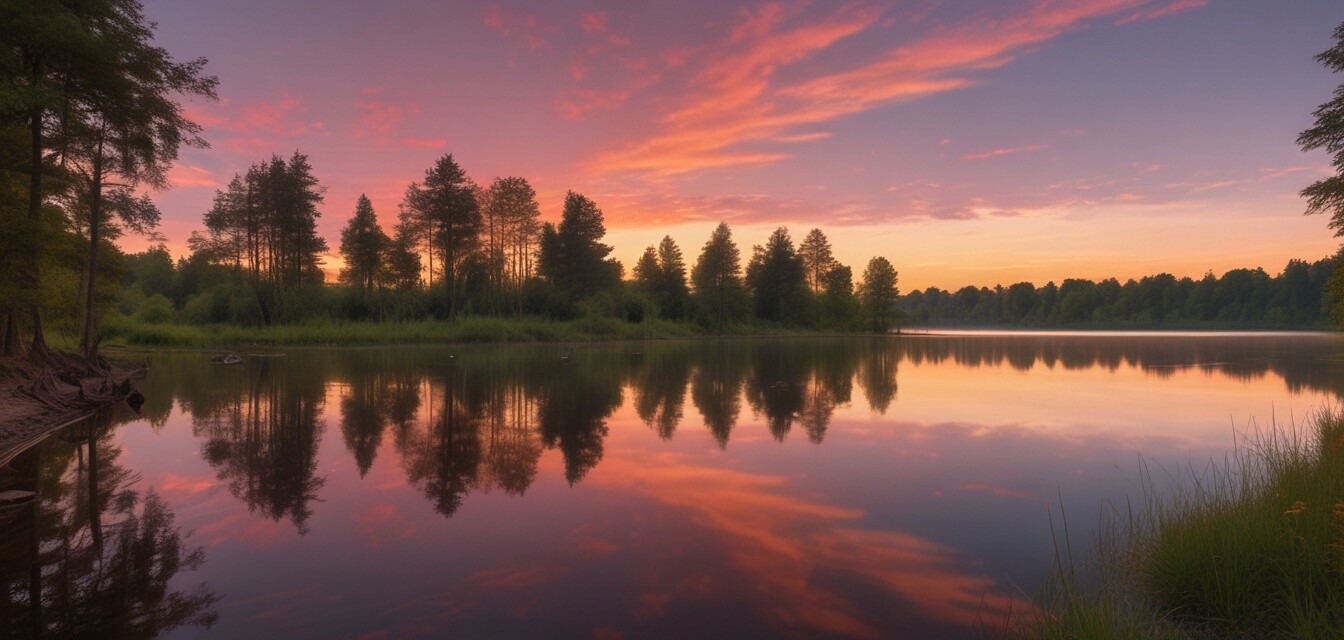
Some links on this website are affiliate links. If you make a purchase through these links, we may earn a commission or you may receive a discount, at no additional cost to you. This helps support our site.
Please also note that Artificial Intelligence (AI) may have been used in the research, content generation, and design of this website. Our aim is to enhance your experience, and we strive for accuracy and transparency in all information presented.
How climate change is affecting lake activities
- Climate change is leading to alterations in water levels, affecting lake accessibility.
- Temperature fluctuations can disrupt aquatic ecosystems, impacting fish and other wildlife.
- Seasonal changes may affect the timing of popular activities like fishing and kayaking.
- Pollution and algal blooms are becoming more frequent due to rising temperatures.
- Responsible water recreation practices are essential to preserve lake environments.
Lakes are a haven for summer adventures, offering various activities that range from fishing and kayaking to relaxing on the beach. However, climate change is beginning to alter these cherished experiences. In this article, we will explore how changing climatic conditions are impacting lake activities, local ecosystems, and what this means for adventurers.
The changing climate and its impacts on lakes
Climate change affects lakes in multiple ways. These are some significant impacts:
| Impact | Description |
|---|---|
| Water levels | Changing precipitation patterns can lead to higher or lower water levels, affecting recreational access. |
| Temperature shifts | Warmer water temperatures can disrupt local ecosystems and fish populations. |
| Seasonal changes | Changes in seasonal patterns affect when activities like swimming, fishing, or paddling can occur. |
| Increased pollution | Rising temperatures may lead to more frequent algal blooms, which can harm aquatic life and recreation. |
Effects on local ecosystems
The impact of climate change on lake ecosystems cannot be overlooked. Here’s how these shifts affect the flora and fauna of our beloved lakes:
- Fish populations: Temperature increases can harm cold-water fish species, while warm-water species might thrive.
- Plant life: Aquatic plants may grow more quickly, affecting habitat for fish and other wildlife.
- Wildlife patterns: Birds and other wildlife may alter their migration and breeding habits due to changing environments.
- Invasive species: Warmer waters create a welcoming environment for invasive species, which can outcompete native species.
Understanding these ecosystem changes is vital for maintaining biodiversity and enjoying healthy lake adventures. For a deeper look into the effects on local wildlife and eco-systems, you can read this article in our News and Trends section.
Popular lake activities that are impacted
Every season, different activities bring joy to lake-goers. However, with climate change at play, the enjoyment of these activities is at risk:
- Fishing: The best fishing times may shift, making it harder to catch fish.
- Swimming: Water temperatures may become less desirable due to algal blooms or rapidly changing conditions.
- Kayaking and canoeing: Lower water levels can make navigation tricky or dangerous, while warmer weather can lead to unexpected storms.
- Beach outings: Activities that rely on stable beach conditions may be affected by erosion and higher temperatures.
Taking climate-conscious actions
As lake enthusiasts, it's crucial to embrace responsible practices to help reduce our climate footprint. Here are some tips on how to be a responsible lake adventurer:
Tips for responsible lake adventures
- Respect posted signs regarding water quality and safety.
- Clean up after yourself and others, ensuring the natural beauty is preserved.
- Opt for eco-friendly products and gear when possible.
- Avoid disturbing wildlife, which can further stress ecosystems.
- Participate in local conservation efforts to keep lakes clean and healthy.
Conclusion
As climate change reshapes our lakes, we must adapt to ensure future generations can enjoy these beautiful environments. From alterations in water levels to ecosystem shifts, the impact of changing climate on lake activities is profound. By staying informed and practicing responsible enjoyment, we can all contribute to healthier lakes.
Pros
- Increased awareness of environmental issues.
- Encouragement for sustainability practices.
- New innovations in outdoor recreational gear.
Cons
- Less predictable weather patterns.
- Challenges with aquatic wildlife conservation.
- Possible loss of favorite recreational spots due to environmental changes.
Staying updated
It's essential to stay connected with the latest news and trends in lake activities. For ongoing updates, be sure to check out our News and Trends blog. With timely insights, you'll always be prepared for your next adventure, no matter how the climate impacts our lakes.
By understanding the link between climate change and our beloved lake activities, we can enhance our enjoyment and protection of these natural treasures.
